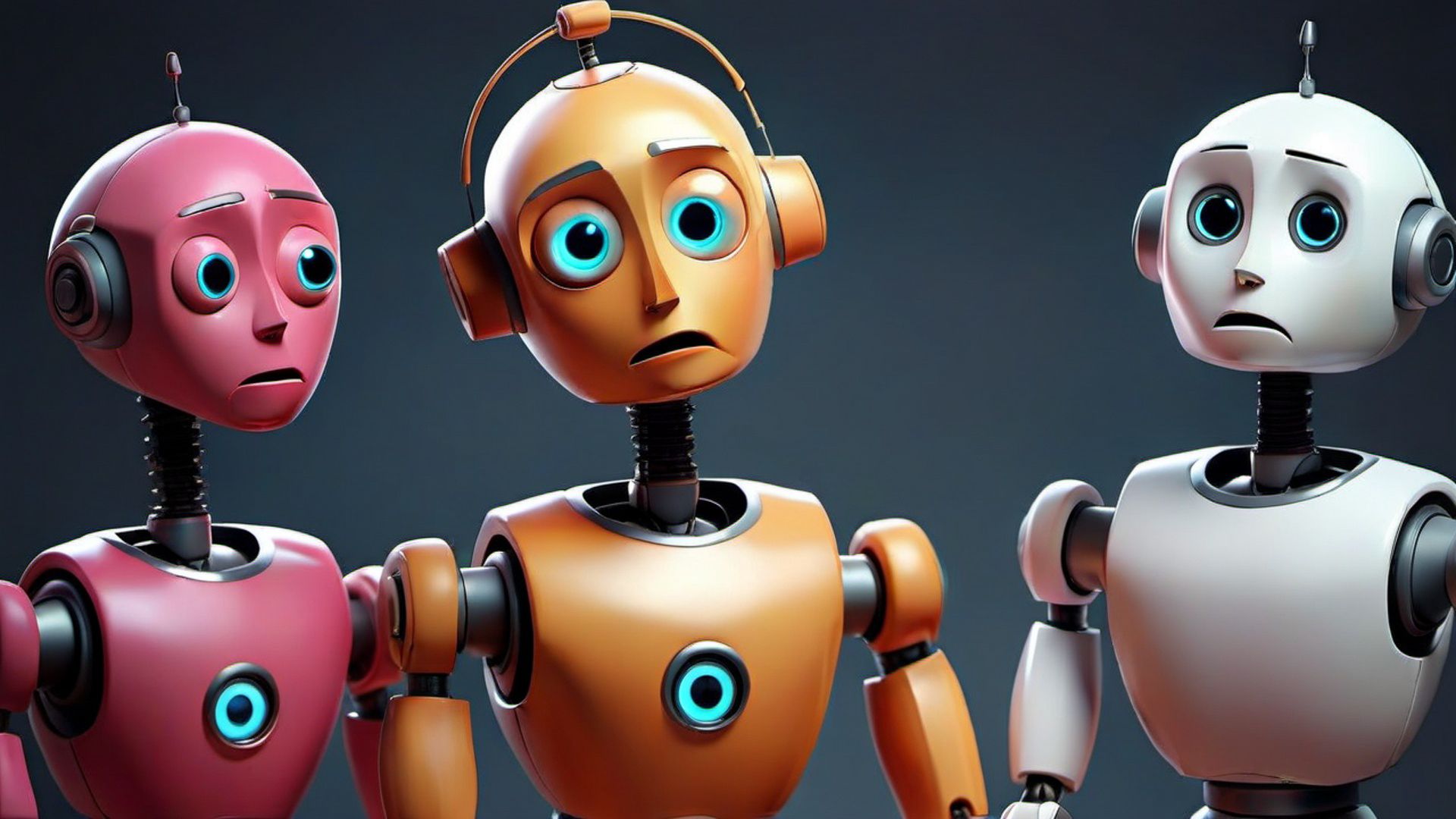Artificial Intelligence: Not as Smart as It Thinks It Is

Ah, artificial intelligence. The shiny new toy everyone’s raving about, like it’s the second coming of sliced bread. But let’s not kid ourselves here. AI, with all its bells and whistles, isn’t all it’s cracked up to be. So, let’s dive into this whole “AI is not intelligent” proposition and give it a good ol’ grumpy rundown.
The "Next Best Word" Gimmick
You know how AI works, right? It’s like that guy at the pub who always tries to finish your sentences, but half the time he’s talking out of his rear end. AI models, like GPT-4 here, are basically just guessing the next word in a sentence based on a boatload of data. Fancy? Sure. Intelligent? Not so much.
Predictive Power
AI’s got a knack for predicting what comes next. Give it a sentence, and it’ll spew out something that makes sense... most of the time. It's like a fortune cookie factory churning out vaguely relevant sayings. Impressive? Maybe. But don't mistake it for understanding anything.
Limited Understanding
Here’s the kicker: AI doesn’t understand squat. It’s like asking your dog for stock tips. Sure, it might bark twice when you mention Tesla, but it doesn’t have a clue about Elon Musk or electric cars. AI’s just crunching numbers and spitting out results, no real comprehension involved.
Intelligence: The Human Way
So, what’s intelligence anyway? It’s about learning, understanding, and thinking on your feet. Humans have this knack for abstract thought, creativity, and, dare I say, wisdom. AI? It’s more like that one friend who memorized the trivia night answers but still thinks the moon landing was faked.
Learning vs. Mimicking
Humans learn. We adapt, we infer, we ponder. AI mimics. It’s like a parrot that can recite Shakespeare but doesn’t know Romeo from Rambo. Sure, AI can generate a sonnet, but it doesn’t feel the love, the drama, or the tragic irony. It’s all surface-level fluff.
Reasoning and Adaptability
AI’s adaptability is as flexible as a rusty hinge. It can handle what it’s seen before, but throw it a curveball, and it’s as lost as a politician in a fact-checking session. Real intelligence involves reasoning, making connections, and adapting to new situations. AI just cross-references its database and hopes for the best.
AI’s Place on the Intelligence Spectrum
Calling AI intelligent is like calling a hammer a master carpenter. Sure, it’s a useful tool, but it’s got no idea what it’s building. AI shines in narrow tasks, but when it comes to the broad strokes of real-world thinking, it’s about as sharp as a marble.
Task-Specific Expertise
AI is like that guy who knows everything about 80s hair metal but couldn’t tell you who the President is. It’s a whiz at specific tasks – diagnosing diseases from images, playing chess, translating languages. But ask it to write a heartfelt letter to your grandma, and you’ll get a robotic mess of clichés and awkward phrasing.
Human Oversight
AI needs babysitting. Constantly. It’s like that intern who needs you to explain the coffee machine every morning. Without human oversight, AI can go off the rails faster than a shopping cart with a busted wheel. We’re the brains behind the operation, not the other way around.
The Philosophical Ramblings
Let’s get philosophical for a minute. Intelligence is tied to consciousness, self-awareness, and a bunch of other fancy traits that AI doesn’t have. It’s like asking a toaster to ponder the meaning of life. AI just processes data and spits out answers without any real understanding or intent.
The Turing Test
Alan Turing came up with a test to see if machines could imitate human intelligence. Some AI systems have passed it, but it’s more like passing a high school drama class. They’re good at pretending, but it’s all an act. No real understanding behind the curtain.
Consciousness and Intent
Real intelligence involves consciousness – knowing you exist and having intentions. AI? It’s like a wind-up toy. It moves, it makes noise, but it doesn’t know why or care. It doesn’t dream, hope, or plan. It just follows its programming.
Wrapping It Up
In conclusion, the idea that "Artificial Intelligence is not intelligent" isn’t just a cranky old man’s gripe. It’s a reality check. AI is a tool, a very sophisticated one, but it’s not intelligent in the way we are. It predicts, it mimics, it processes, but it doesn’t understand, reason, or feel.
So, next time someone tries to sell you on the brilliance of AI, just remember: It’s the high-tech equivalent of a parrot reciting Shakespeare. Impressive to watch, sure. But it doesn’t have a clue what it’s saying.
And that, my grumpy old friend, is the plain, unvarnished truth.
